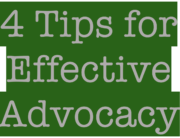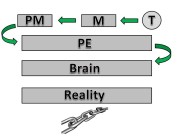The Danger of “Loving” Everyone So Much
Here is a typical social media scenario. Person A posts selfie after 38 attempts to get the pose just right enough to look spontaneous and natural. Caption to selfie has no connection with selfie at all, just some brief commentary on what’s going on that day or moment. Person B sees selfie, doesn’t read caption, digitally likes the selfie (not the same as really liking it), and comments, “ILYSM”. For the uninitiated, those letters are short for “I love you so much”. This starts a cascade of ILYSMs that might number in the dozens or more. As you scroll through the comments, virtually no one has mentioned the caption. If satisfied with the response, Person A repeats the pattern later that day. If unsatisfied, Person A deletes the post, tries a different pose with unrelated caption, or a sympathy-seeking caption, and tries again.
So why is ILYSM so dangerous? Because it is fool’s gold. The danger of mindlessly churning out over-the-top expressions of affection is not only that there is little substance to them, but that even more insidiously, it dulls a person’s ability to recognize genuine affection and fidelity. As Violet, from the Incredibles family stated to her mother, with the know-it-all tone familiar to many parents of teenagers, “If everyone is special, then no one is.” If my standard interpersonal expression is one of extreme affection, how will I differentiate true affection from vacuous affection?
People who collect ILYSMs will invariably struggle to know when they are actually valued by another. They will struggle to recognize those who are actually reliable and protective of their welfare. They will struggle to trust people who they can actually trust because they have been fooled so many times by expressions of those five empty letters.
People who blindly distribute ILYSMs are not malicious. They themselves share the same struggles as the collectors and in truth, many people play both roles. I often speak with clients about relationship dumpster diving. Those who eat from the garbage do not do so because they prefer the taste and texture of what they find there. They do it because they either have, or believe they have, no other option. Similarly, people will accept counterfeits of closeness if they believe that it is the best they can expect to receive.
I know that I sound like a grumpy old guy, lamenting how the rising generation is sinking, but this description applies to injured people of all ages. If it’s you I am describing, raise your standards. If it’s your child, have a gentle conversation (or 1000 conversations) about recognizing true friendship and healthy relationships. Don’t fall for the unfulfilled promise of ILYSM.



















































Recent Comments